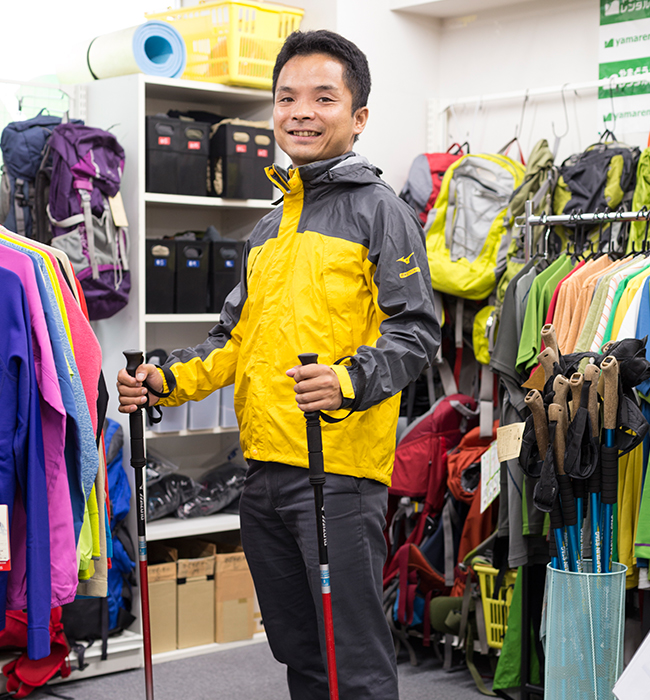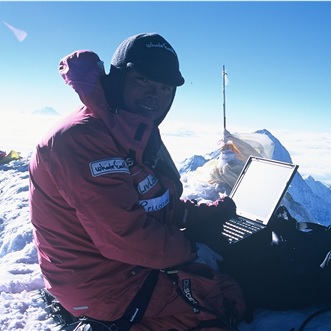Representative Director, Field & Mountain Inc.
Class of 2006, Bachelor’s degree, Faculty of Economics
(Recipient of a President’s Award in AY 2002)
- http://www.field-mt.com/ (Japanese)

“The summit of Mt. Everest is known locally as ‘Sagarmatha,’ which means ‘head in the great sky,’ while the ‘Denali’ of Mt. Denali means ‘the high one,’” he explains. “Learning about the local names and meanings reinforced my impression that these tall mountains were revered by local people. The mountains themselves were of course what brought me to these places, but I also enjoyed interacting with local people and cultures while sightseeing in the different regions.”
Mr. Yamada thought about dropping out of university to become a full-time mountaineering guide, but ended up graduating and joining a foreign consulting firm instead. He believed that working there would help him understand a variety of industries and therefore establish a broad foundation from which he could communicate the appeal of mountains to more people. He enjoyed his time at the company, saying it gave him an “adrenaline rush.” After working there for three years, however, he arrived at a crossroads when eight people lost their lives on Hokkaido’s Mt. Tomuraushi, shocking him into action.

He became the first person in the world to start up a notebook computer on the peak of Sagarmatha.
As he spent his days thinking about what he should do, he came across the Japan Productivity Center’s “White Paper on Leisure,” which helped him find the answer. The survey’s findings that many people were unable to pursue mountain climbing due to financial reasons inspired him to start a mountaineering equipment rental business—a kind of business commonly seen overseas, but a niche that had yet to be filled in Japan. The mission of this “outdoor venture company” is to increase the number of mountain climbers and promote safe mountaineering. In order to achieve this mission, the company is presently engaged in the three-pronged approach of (1) renting out equipment; (2) publishing a free newspaper; and (3) organizing guided mountaineering tours.
“Japan should make better use of its mountains as part of its tourism resources,” he points out. “While in many industries you need to expand your business overseas in order to compete on a global scale, I feel that tourism is one of the few industries in which you can compete globally without having to do that.”
Because Mr. Yamada has actually climbed a variety of mountains around the world, he understands the unique appeal of those in Japan. And because he has observed a range of industries as a business consultant, he can look at the big picture for tourism, making him more than just a mere mountaineer.
Q&A Extras
How many times have you climbed Mt. Fuji as a guide?
“About 300 times. When I see people wearing our company’s gear, I can’t help but grin.”
What’s appealing about Japanese mountains that’s different from mountains in other countries?
“With Japanese mountains, you can enjoy different scenery throughout all four seasons.”
Did you have any favorite places on the UTokyo campuses?
“Gotenshita Memorial Arena. I often practiced climbing on the bouldering wall there.”
What do you think is good about UTokyo?
“I like that UTokyo students don’t ‘go with the crowd.’ They have a strong independent streak, and they’re not really bound by organizational ties.”
Note: This article was originally printed in Tansei 34 (Japanese language only). All information in this article is as of March 2017.





